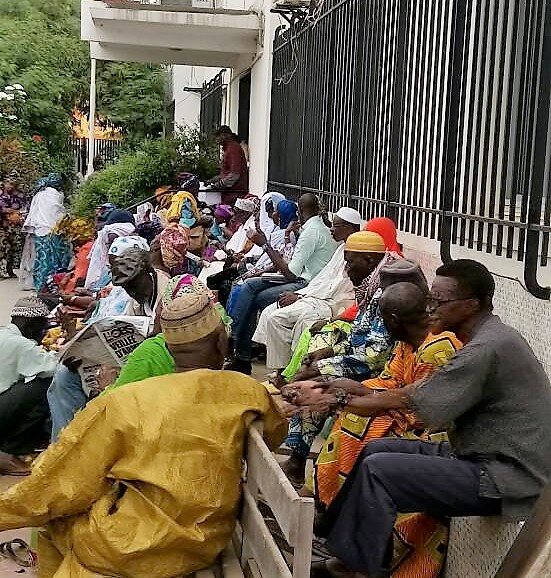COVID-19: the Local Government Finance response in Senegal
The spread of COVID-19 in Senegal started from March 3 2020. As of April 6, the Government of Senegal had reported 226 confirmed cases of COVID-19 which has affected 23 districts. Dakar is the most affected region, with 68% of cases. At the local level, most of the municipalities in Senegal have already initiated their response plans by mobilizing human and material resources to combat the spread of the virus.
Impact of COVID 19 on the economy of Senegal. The government believes the following sectors will be impacted:
- Exports in 2020 are expected to decline by 16% compared to an increase of 9% in 2019
- Imports would show a sharp decline, estimated at 18% in 2020 compared to an increase of 6% in 2019
- Remittances, which account for more than 10% of the GDP of Senegal, or XOF 1,300 billion, (US$2.2 billion), would experience a decline of nearly 30% as a result of the drop in economic activity in the European Union (on the basis that the confinement does not last in Europe)
- Other sectors such as fishing, livestock, and construction and public works are also affected by the pandemic.
Sectors most affected (loss of turnover)
- Accommodation and Restauration
Restoration: XOF 56 billion ($93M)
Hotels: XOF 40 billion losses of Income ($66M) - Commerce
XOF 50 billion, ($83M) - Transportation
Air transport: XOF 34.3 billion, ($57M)
Land transport: XOF 24.3 billion, ($40M) - Education
XOF 1.3 billion, ($1.3M)
Pillars of the Economic and Social Resilience Programme
The government of Senegal has defined an Economic and Social Resiliency Programme with five pillars of actions to respond to this crisis.
- Strengthening the health system.
- Strengthening the social resilience of the population.
- Macroeconomic and financial stability to support.
- Support to the private sector and maintaining jobs.
- Regular supply of hydrocarbons, medical and pharmaceutical products and basic necessities.
Implementation of these pillars can be accelerated through the local government finance system. The specific measures are:
Health Sector measures
- Detection of suspected and confirmed cases.
- Rapid isolation of such cases.
- Strengthening the means of prevention and control of infection in health structures and the community.
- Intensifying risk communication on infection and the participation of populations in response measures.
- Coordination of the response to the epidemic.
An envelope of XOF 64.4 billion, (USD 106M) is devoted to the health sector for the strengthening of its capacities.
Social Resilience measures:
Food
- Distribution of food stamps
- An envelope of XOF 69 billion, ($114M) devoted to the purchase of food for 1 million households including Daraas the traditional Quranic schools that rigorously target the poorest people.
- Food-kit of basic necessities (pasta, rice, soap, sugar) for an amount of XOF 66,000, ($110) per household.
Support to the Diaspora
- Allocations totalling XOF 12.5 billion, ($21M) will be made to consulates and embassies outside Senegal, which will be responsible for the distribution and monitoring of the funds. This will help the diaspora that has been deeply affected by the pandemic.
Payment water and electricity bills
- Support for the vulnerable populations of the entire social bracket of about XOF 15.5 billion, ($25.7M) and XOF 3 billion, ($4.9M) for two months, respectively for electricity bills.
- Beneficiaries Social section:
975,522 households for electricity
670,000 households for water.
Macroeconomic and financial stability measures
Taxation
- Partial forgiveness of the tax debt recognized as at December 31, 2019, owed by companies and individuals, for a total amount of XOF 200 billion, ($331M).
- General time limit for payment of suspended VAT recovered by customs and services 12 to 24 months.
- Tax rebates and tax suspensions for companies that keep their workers in the country activity or to pay more than 70 of the wages of employees laid off from work.
Clearance of domestic debt
- XOF 302 billion, ($500M) devoted to payments due to state suppliers. This will be critical to keeping local value chains going.
Specific measures for the sectors most affected
Funding
- Establishment, in partnership with the banking sector (BCEAO and commercial banks), of a mechanism to provide funding for companies affected by the crisis to enable them to access the resources to meet urgent needs.
This mechanism should enable the banks to inject a significant financing envelope for the benefit of these enterprises of the order of XOF 200 billion, (USD 331M) in the form of treasury or investment credits with interest rate and maturity conditions taking into account their situations.
UNCDF and ADEL-SAS The Diaspora and Local Economies Alliance (ADEL) which is a capital investment company with strong roots at the local level as they are supporting municipalities, project developers and local savers are supporting nine local authorities in which ADEL-SAS intervenes to implement these COVID19 responses locally.
